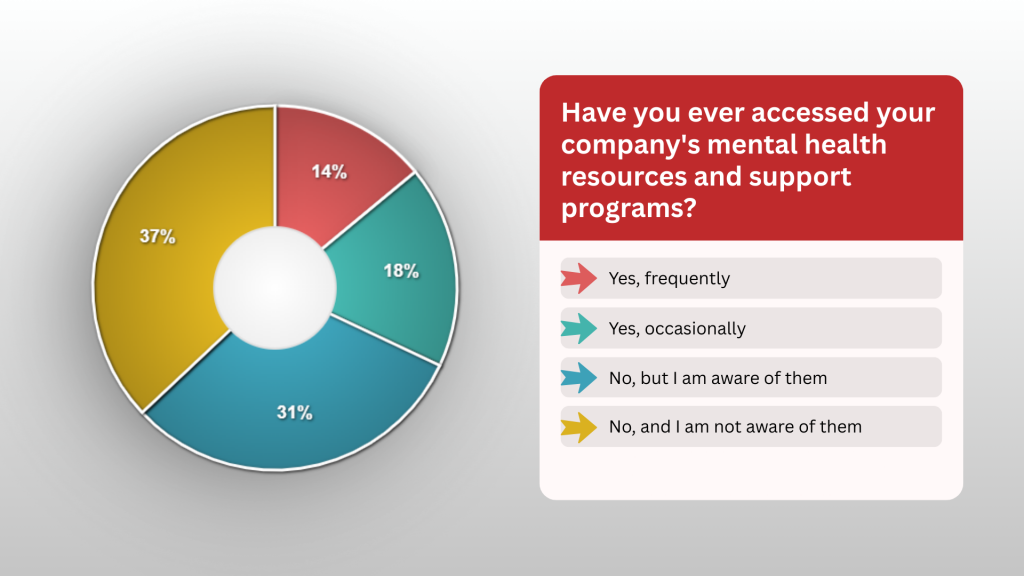
Workplace stress vs Burnout: What you need to know before it’s too late
This isn't to scare you. It's to make you aware of a very real and growing risk for professionals everywhere: burnout. It’s a silent issue that can dismantle your health and career if left unchecked. To understand why this is so important, let's look at the facts. Did you know…
The reality check: What the numbers say about burnout
The data paints a clear and urgent picture. In the GCC, a recent study found that one in three employees reports symptoms of burnout (7). This is significantly higher than the global average. The impact on careers is direct: 36% of professionals in the region are considering leaving their jobs—more than double the rate seen globally—with a challenging work environment being a major reason (7).
The consequences go far beyond job satisfaction. Globally, research has linked chronic workplace stress to a 10-40% higher risk of serious health issues like coronary heart disease and stroke (2). It’s not just in your head, either. Medical science shows that prolonged burnout can physically alter the brain's structure, impacting areas responsible for memory and emotional control (3). These aren't just statistics; they are warnings about the real cost of unmanaged stress.
A gap in support: What a recent poll reveals
While many companies offer resources, there seems to be a significant gap between availability and use. In a recent Naukrigulf poll of nearly 12,000 professionals, participants were asked if they had ever used their company's mental health resources. The results highlight a critical disconnect.
As the chart shows, a staggering 68% of participants have never accessed any of the mental health resources or support programs provided by their companies. Perhaps more concerning is that 37% were not even aware that such support existed. This shows that even when help is available, it often goes unused, placing the responsibility back on the individual to recognize the signs of burnout and seek support.
What is burnout? (it's not just stress)
Given the serious risks, it's important to understand what burnout truly is. It's far more than just feeling stressed. The World Health Organization (WHO) officially defines burnout as a syndrome resulting from "chronic workplace stress that has not been successfully managed" (1).
This definition is powerful because it correctly identifies the source of the problem: The workplace environment, not a personal failure. The USA’s surgeon general's office agrees, stating that "workplace systems cause burnout" (4). It happens when the demands of a job consistently outweigh a person's ability to recover, leading to a state of deep exhaustion.
The quiet warning signs you shouldn't ignore
Burnout doesn't happen overnight. It builds slowly, often with subtle signs that are easy to dismiss as "just a part of the job." Being aware of these early warnings is the key to protecting yourself. Look out for:
- Constant exhaustion: You feel drained all the time, even after a full night's sleep (11)
- Growing negativity: You feel cynical or frustrated about your work and colleagues (6)
- Reduced performance: You find it hard to concentrate and your quality of work is slipping (6)
- Emotional distance: You feel numb about your job and start to pull away from your responsibilities (1)
- Physical symptoms: You experience frequent headaches, muscle pain, or stomach problems (6)
What's really causing the pressure?
Understanding the causes of burnout can help you spot risks in your own work environment. Research consistently points to a few key factors that create the conditions for burnout. These often include a heavy workload and long hours, which leave no time for rest and recovery (5). Another major cause is a lack of control or autonomy, where you feel powerless over your schedule and assignments (5). Finally, unclear expectations from managers can be a constant source of anxiety, making it impossible to feel like you're succeeding (5).
Taking back control: Positive steps for your well-being
The good news is that burnout is not permanent, and you can take positive action. Governments are also recognizing the importance of this issue, with forward-thinking initiatives like the UAE's national program for happiness and wellbeing helping to create healthier workplaces (7).
On a personal level, taking small, deliberate steps can make a huge difference. Start by talking to a trusted manager or mentor about your workload. Focus on setting clear boundaries, like turning off work notifications after hours. Most importantly, make time for rest and activities outside of work that recharge you.
Building a career that lasts
Your health and well-being are your most valuable career assets. Recognizing the signs of burnout and taking proactive steps to manage stress is a sign of strength, not weakness. It ensures you can build a long, successful, and fulfilling career without sacrificing your health in the process. Remember, the goal is to find a role where you can thrive sustainably.
References
- World Health Organization
- National Library of Medicine
- Association for Psychological Science
- US Department of Health and Human Services
- Mayo Clinic
- WebMD
- McKinsey Health Institute
- National Library of Medicine (healthcare sector)
- Frontiers in Psychiatry
- National Library of Medicine (UAE healthcare)
- American Centre for Neurology in UAE




